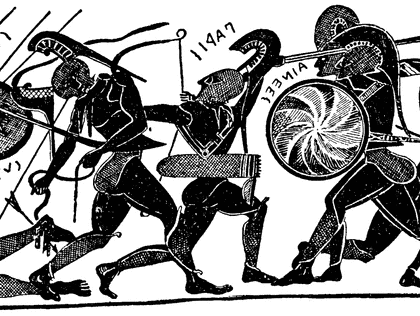J. I. Packer Introduces C. H. Spurgeon
by Bubba
I love Spurgeon. I have an extensive collection of his sermons and various other writings. As well, I fancy I share a number of things in common with the man. We both love to pursue Christ, enjoy fine cigars, suffer the pain of gout, neither have attained a college education, are overly familiar with depression, and the list could go on and on. Most importantly to me Spurgeon knew unbelievable physical pain and would glorify God through that.
His first attack of gout came in 1869 at the age of 35 (mine at age 30). It became progressively worse so that “approximately one third of the last twenty-two years of his ministry was spent out of the Tabernacle pulpit, either suffering, or convalescing, or taking precautions against the return of the illness.” In a letter to a friend he wrote, “I thought a cobra had bitten me, and filled my veins with poison; but it was worse,-it was gout.” For over half his ministry Spurgeon dealt with ever increasingly recurrent pain in his joints that cut him down from the pulpit and from his labors again and again. The diseases (gout, rheumatism and Bright’s disease) finally took his life at age 57 while he was convalescing in Mentone, France.
When my own gout threatens to undo me, I turn to Spurgeon who points me towards Christ. I was reading Spurgeon this morning, and so enjoyed Packer’s introduction to him that I would share it with you all, and encourage you to get to know the Prince of Preachers yourself.
In C. H. Spurgeon’s own day he was not thought of as a scholarly man. Because he was a popular preacher, fulfilling a marvelous evangelistic and nurturing ministry to ordinary people; because his writings, too, were addressed to ordinary people rather than academics; because he was a Dissenter, belonging to a minority culture in Anglican-dominated England; because the stereotype of a Dissenter was of an uncultured boor, whose forthrightness betokened crudity of mind; because Spurgeon himself had never attended a university or theological college; and because he resisted supposedly enlightened and progressive trends (the acceptance of Darwinism and the fallibility of the Bible; the denial of penal atonement and the eternal punishment of the lost), he was often dismissed, even by admirers of his preaching, as a brash upstart for challenging the wisdom of the learned and as a myopic dinosaur for proffering the old paths.
Yet he was a bookworm from childhood, and a diligent student all his life. He was an amazingly rapid reader, with a photographic memory, virtually total recall, and as he put it “a shelf in my mind” for storing every fact with a view to it’s future use. Each week he would work his way through a number of books – major treatments of scientific, historical, and philosophical questions. He had 30,000 volumes of every kind (save fiction) in his personal library, and claimed to know the contents of them all. The stereotypes of Spurgeon as a brash ignoramus cannot be sustained either from his lifestyle or his words. His limped, thought-laden rhetoric came from a shrewd, mature, extremely well stocked mind.
— JI Packer, Psalms Volume II Introduction
Recommended Posts

Why I Love My Job
December 14, 2017

Liberty & Oppression
September 25, 2017

What is a Father?
June 19, 2016